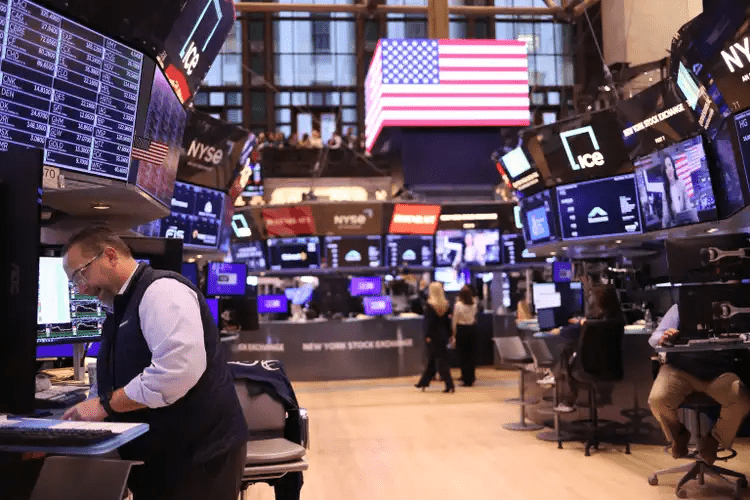Stock markets across Europe and Asia experienced significant declines on Monday, driven by fears of a potential slowdown in the US economy. The turmoil followed a troubling set of economic indicators from the US, including weak jobs data and disappointing earnings reports from major American companies.
In London, the FTSE 100 index opened 2.3% lower, while the Euronext 100 fell by 3.5%. This follows a dramatic sell-off in Asia, where Japan’s Nikkei 225 plummeted 12.4%, marking the largest point drop in its history. The plunge was exacerbated by a strengthening yen, which has risen more than 10% against the US dollar over the past month due to the Bank of Japan’s recent interest rate hike.
The Japanese currency’s appreciation has made Japanese stocks more expensive for foreign investors, contributing to the market’s sharp decline. Taiwan’s main share index and South Korea’s Kospi both dropped more than 8%, while India’s NSE Nifty 50 was down 2.8%. The S&P/ASX 200 in Australia fell 3.6%, the Hang Seng in Hong Kong lost 2.5%, and the Shanghai Stock Exchange decreased by 1.4%. Cryptocurrencies also suffered, with Bitcoin sliding to around $50,000, its lowest level since February.
The market turmoil was sparked by weak US employment data released on Friday, which showed that US employers added only 114,000 jobs in July, significantly below expectations. The unemployment rate also edged up. This disappointing data, combined with downbeat earnings reports from companies like Amazon and Intel, raised concerns about a potential slowdown in the world’s largest economy.
Shanti Kelemen, Chief Investment Officer at M&G Wealth, commented on the situation, noting that there are signs the market may be slowing. She added that the reaction in the Japanese market, which was closed when the US data was released, highlights the broader impact of these economic concerns.
Kei Okamura, a Tokyo-based portfolio manager at Neuberger Berman, attributed the Asian sell-off partly to the yen’s sharp appreciation, which has raised concerns about Japanese corporate earnings, especially for exporters like automakers. The Bank of Japan’s recent interest rate increase, its highest since the 2008 global financial crisis, has further unsettled investors.
In the US, Friday’s sharp declines on Wall Street followed a series of weaker-than-expected economic data. The Nasdaq fell about 10% from its peak, marking a “correction,” while the Dow Jones Industrial Average dropped 1.5%, and the S&P 500 ended 1.8% lower. Over the weekend, Berkshire Hathaway, led by veteran investor Warren Buffett, disclosed that it had sold about half of its stake in Apple, adding to the market’s anxiety.
The current economic landscape is casting a shadow over global markets, with investors grappling with high borrowing costs and the potential end of a long-running rally fueled by optimism over artificial intelligence. As the situation evolves, market participants remain on edge, awaiting clearer signals about the future direction of the global economy.


